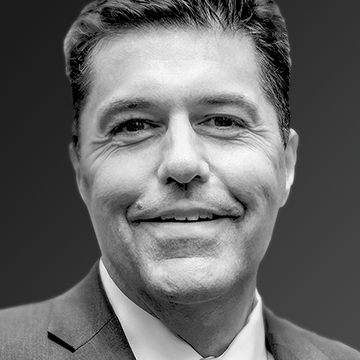Pharmaceutical companies have long relied on speaker bureaus as a key element of their marketing and educational strategies. Speaker bureaus enable these companies to engage healthcare professionals, disseminate valuable medical information, and promote their products. However, the traditional approach to speaker bureau management is undergoing significant transformations due to the convergence of technological advancements, regulatory changes, and evolving industry dynamics. This article explores the future of speaker bureau management for pharmaceutical companies, focusing on emerging trends and innovations that are reshaping the landscape.
Evolving Regulatory Landscape:
The pharmaceutical industry operates within a highly regulated environment, and compliance with various laws and guidelines is crucial. In recent years, regulatory bodies such as the U.S. Food and Drug Administration (FDA) and the European Medicines Agency (EMA) have strengthened their oversight on speaker programs. Future speaker bureau management will require a heightened emphasis on transparency, disclosure, and compliance. The use of technology platforms that facilitate tracking, monitoring, and reporting will become paramount, ensuring that engagements are compliant with regulations and ethical standards.
Digital Transformation:
The digital revolution has had a profound impact on various industries, and the pharmaceutical sector is no exception. The future of speaker bureau management lies in leveraging digital platforms and tools to enhance efficiency, reach, and effectiveness. Virtual speaker programs and webinars have gained prominence, offering greater flexibility, reduced costs, and increased audience engagement. By adopting virtual and hybrid formats, pharmaceutical companies can extend their reach beyond physical boundaries, target specific healthcare professional segments, and gather real-time data for analysis and improvement.
Artificial Intelligence and Data Analytics:
Advancements in artificial intelligence (AI) and data analytics are poised to revolutionize speaker bureau management for pharmaceutical companies. AI-powered platforms can streamline various aspects of the process, from speaker selection and training to content customization and audience segmentation. Data analytics can provide valuable insights into speaker performance, audience preferences, and engagement metrics, allowing companies to optimize their programs and achieve better outcomes. Machine learning algorithms can also help identify emerging trends, anticipate market needs, and tailor educational content accordingly.
Enhanced Speaker Training:
In the future, pharmaceutical companies will prioritize enhanced speaker training programs to ensure the highest quality presentations. The traditional approach of relying solely on product knowledge will evolve to include broader communication skills, understanding of adult learning principles, and techniques to engage diverse audiences. Virtual reality (VR) and augmented reality (AR) technologies can offer immersive and interactive training experiences, enabling speakers to refine their skills in realistic environments. Gamification elements can be incorporated to make the training process more engaging and effective.
Collaboration and Partnerships:
Speaker bureau management will increasingly involve collaboration and partnerships between pharmaceutical companies and other stakeholders. By teaming up with medical associations, academic institutions, and independent experts, companies can tap into a wider pool of qualified speakers, access specialized knowledge, and establish credibility. Collaborative platforms can facilitate seamless communication, content sharing, and joint program development. The future of speaker bureau management will involve forging strong relationships and harnessing collective expertise to deliver impactful educational initiatives.
Personalization and Customization:
Pharmaceutical companies are recognizing the importance of personalization and customization in speaker bureau management. One-size-fits-all approaches are being replaced by tailored content and experiences that cater to the specific needs and preferences of healthcare professionals. Through data-driven insights, companies can identify the areas of interest for individual speakers and audiences, and curate content and programs accordingly. Personalization can enhance engagement, knowledge retention, and the overall impact of speaker bureau initiatives.
Ethical Considerations:
As the industry evolves, ethical considerations will become increasingly important in speaker bureau management. Companies will need to ensure transparency, avoid undue influence, and prioritize educational value over promotional intent. Striking the right balance between educational content and promotional messaging will be crucial. Ethical guidelines and codes of conduct will need to be developed and adhered to by both the pharmaceutical companies and the speakers themselves. Robust monitoring and auditing systems will be implemented to maintain compliance and detect any potential ethical violations. Additionally, companies will need to address potential conflicts of interest and ensure that speaker selection is based on expertise and qualifications rather than financial incentives.
Patient-Centric Approach:
The future of speaker bureau management for pharmaceutical companies will see a shift towards a more patient-centric approach. Recognizing the importance of patient perspectives and the need to improve health outcomes, companies will incorporate patient speakers into their programs. Patient testimonials and experiences can provide valuable insights, enhance empathy, and foster a deeper understanding of the patient journey. Pharmaceutical companies will seek to engage patients and healthcare professionals in collaborative dialogue, promoting shared decision-making and patient-centered care.
Measurement and ROI:
In the evolving landscape of speaker bureau management, measuring the return on investment (ROI) becomes crucial. Pharmaceutical companies will focus on defining key performance indicators (KPIs) to evaluate the effectiveness and impact of their speaker programs. Metrics such as audience reach, engagement levels, knowledge acquisition, and behavioral changes will be tracked and analyzed. Data-driven insights will guide decision-making, enable continuous improvement, and ensure that speaker bureau initiatives align with strategic objectives.
Globalization and Localization:
As pharmaceutical companies expand their operations globally, speaker bureau management will need to adapt to diverse cultural contexts and regulatory frameworks. Localization of content and programs will be necessary to ensure relevance and effectiveness in different regions. Global collaborations will become more common, requiring effective cross-cultural communication and coordination. Moreover, language barriers can be addressed through translation services and multilingual support, facilitating seamless engagement with healthcare professionals worldwide.
SaS (Software as a Service) platforms play a vital role in the efficient management of speaker bureau programs for pharmaceutical companies. These platforms offer a range of features and functionalities that streamline various aspects of speaker bureau management, leading to improved efficiency, compliance, and effectiveness. Here are some key roles played by SaS platforms in efficient management:
Centralized Management:
SaS platforms provide a centralized hub where all aspects of speaker bureau management can be handled. This includes speaker selection and onboarding, content development and customization, event scheduling and registration, communication and collaboration, tracking and reporting, and performance evaluation. Having a single platform eliminates the need for multiple tools and manual processes, simplifying the overall management workflow.
Compliance and Transparency:
SaS platforms help ensure compliance with regulatory requirements and ethical guidelines. These platforms often include built-in features to enforce transparency and disclosure, such as capturing and documenting interactions between speakers and attendees. They can generate reports and audit trails for regulatory compliance purposes, reducing the administrative burden associated with compliance management.
Speaker Engagement and Training:
SaS platforms facilitate effective speaker engagement and training. They provide tools for speaker communication, document sharing, and event coordination, allowing speakers to access relevant materials and interact with program managers and other speakers. Training modules, resources, and assessments can be delivered through the platform, ensuring consistent and standardized training for speakers. SaS platforms can also track speaker progress and certifications, ensuring ongoing compliance with training requirements.
Content Management and Customization:
SaS platforms enable efficient content management and customization. Companies can upload and organize educational materials, presentations, and resources in a centralized repository. Content can be easily customized to suit different audiences, regions, and regulatory requirements. SaS platforms often include version control, ensuring that speakers have access to the latest approved content, minimizing the risk of outdated or non-compliant information being disseminated.
Event Planning and Execution:
SaS platforms offer robust event planning and execution capabilities. They enable the creation and management of speaker programs, including virtual, in-person, and hybrid events. Companies can use the platform to schedule events, send invitations, manage registrations, and track attendance. SaS platforms may also integrate with virtual event platforms, facilitating seamless hosting and participation in virtual speaker programs.
Data Analytics and Insights:
SaS platforms provide valuable data analytics and insights to measure the effectiveness of speaker bureau programs. They capture and analyze data related to speaker performance, audience engagement, knowledge acquisition, and behavioral changes. These insights help companies evaluate program outcomes, identify areas for improvement, and make data-driven decisions for optimizing future programs. SaS platforms often include dashboards and reporting features, enabling program managers to visualize and communicate key performance metrics effectively.
Integration and Scalability:
SaS platforms can integrate with other systems and tools used by pharmaceutical companies, such as customer relationship management (CRM) software, learning management systems (LMS), and event management platforms. Integration streamlines data flow and ensures a seamless user experience. SaS platforms are also scalable, accommodating the growing needs of pharmaceutical companies as they expand their speaker bureau programs and reach wider audiences.
Conclusion:
The future of speaker bureau management for pharmaceutical companies holds immense potential for innovation and transformation. Technological advancements, regulatory changes, and shifting industry dynamics are reshaping the way speaker programs are designed, implemented, and evaluated. The adoption of digital platforms, artificial intelligence, data analytics, and immersive training technologies will enhance efficiency, compliance, and audience engagement. Collaboration, personalization, and ethical considerations will drive the success of speaker bureau initiatives. Ultimately, by embracing these emerging trends and strategies, pharmaceutical companies can maximize the educational impact of their speaker programs and contribute to better patient outcomes in the dynamic healthcare landscape of the future.





